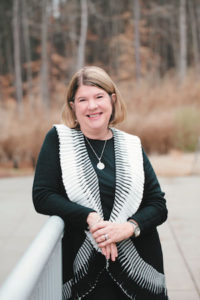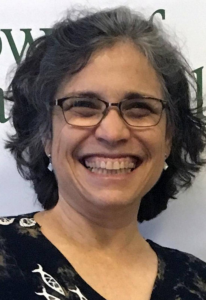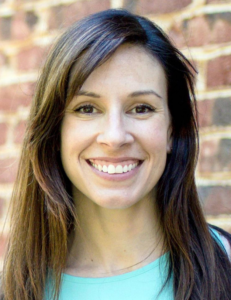CHALT conducted Chapel Hill Town Council candidate interviews between September 24 – 26th. All the candidates consented to a 30 minute interview except for Council Member Maria Palmer who refused our invitation to meet.
We posed the same 5 questions to each candidate but varied the follow-up questions.
Pam Hemminger, candidate for Mayor
1. Describe some ways you would like Chapel Hill to be different in five years than it is now, and some ways you would like it to remain the same as now. What specific things will the Town government need to do to achieve your vision?
Different in the future: more walkability, better and safer bike lanes, encourage e-bikes, better renewable energy, solar roofs, preserve Tree canopy. Buildings that take into account desire for ‘aging in place,’ focus on innovation, more culture-arts venues, storm water improvements. More green; Traffic is a huge problem — not sure what to do; housing for mid-income people needed, interesting discussions are underway; more environmental protection.
Keep the same: continue innovation initiative; keep Launch growing; continue development of enterprise zone
2. Evaluate the results to date of the form-based code adopted for the Ephesus-Fordham district (renamed Blue Hill). Specifically, what do you see as the strengths and weaknesses of the code?
Strengths: good for pace of redevelopment; offers certainty to developers;
Weaknesses: good plan, poor implementation & staff even said they were not prepared; little environmental focus, green space, weak on mobility, sidewalks too narrow. Can tweek the existing F-B code but for the Blue Hill area too late to start over again. Because the decisions are made by the Town Manager, Roger needs to hear directly from the public — he does have some flexibility in negotiating changes; shared parking needed; flooding continues; trying to improve on unsatisfactory resolution on stormwater impoundment.
3. The Town Manager’s role is to carry out the goals and visions of the elected Town Council. What, if anything, would you change about the data and analysis the Manager and his staff provide to Council members to inform their decisions?
The Town Manager is in charge of town operations. When Council is in agreement on a topic it is easier to work with the Town Manager. When he hears mixed messages he does not have a clear direction. Community should be more involved in how decisions are shaped; would like other Town staff to be heard from when presenting information to the Council. Consultants can be valuable — more recent ones are good. We need to do a better job of telling our story — need to counter the view that CH doesn’t want businesses, too expensive to build or live here, or only for wealthy people. Blue Hill renaming could have been a successful community process. Acknowledges that the district was a lost opportunity to do good for the community.
4. What are some specific, practical steps the Town could take to make it easier for those who work in Chapel Hill (e.g., teachers, public safety, Town staff and university and hospital employees) to also live here?
Housing for Town staff, etc. is important. Mayor has advocated for a strategic plan; there will be a work session in October to review a plan so can move forward with mixed income, partnering with UNC and others to address this. There is really not land available for new subdivisions but for townhomes. University needs to be involved; good prospect for the town to work with the school system IFC, etc. Greene Tract offers possibilities; prefers mix of housing.
5. What should the Town government do to address Chapel Hill’s worsening traffic congestion? Are we on the right path for the transit we need?
Wants Bus Rapid Transit project (BRT) on MLK to move forward. DOT proposing superstreets as solution, which she does not favor. DOT is encouraged to look for a connection to I-40 south of where Obey Creek will be built to divert drivers from coming into CH to get to I-40. Unclear how to best to address traffic, though.
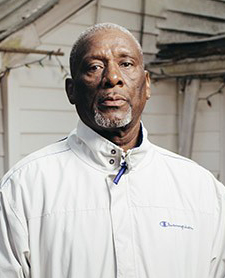 Eugene Farrar, write-in candidate for Mayor
Eugene Farrar, write-in candidate for Mayor
1. Describe some ways you would like Chapel Hill to be different in five years than it is now, and some ways you would like it to remain the same as now. What specific things will the Town government need to do to achieve your vision?
Change: be open to everybody; citizens not pleased with growth especially 5 – 6 story bldgs.; want small village where everyone knows police and teachers; be accountable to citizens who live here permanently, not the students who leave; what happens to small businesses on Franklin St when students leave? Reintegrate those businesses with the permanent residents; Cap property tax so people can stay living here; no tall bldgs. They also take away green space; no urban look; cap heights at 2-3 stories.
2. Evaluate the results to date of the form-based code adopted for the Ephesus-Fordham district (renamed Blue Hill). Specifically, what do you see as the strengths and weaknesses of the code?
Strengths: Good things happening; need restaurants for visitors; near a school and homes so need to be mindful.
Weaknesses: Increased traffic through residential area; should limit trucks on Ephesus Church Rd.; should allow residents to be heard and to be at the table.; (Del asked re flooding). Recommend calling in engineers to take a good look at problem of sending water downstream from EF to neighborhoods south of Estes.
3. The Town Manager’s role is to carry out the goals and visions of the elected Town Council. What, if anything, would you change about the data and analysis the Manager and his staff provide to Council members to inform their decisions?
Data/analysis not adequate or good; town should not have all power and authority in manager. Eugene would get rid of him. Too much power is given to the Town Manager. Why does he have the last say? “Council needs to step up and take charge.” Manager ignored Appeals Bd (in a case he referred to). Eugene served on this board. Consultants – not a good use of town money. Don’t know these “friends” (i.e. consultants who might be “friends” of staff). Citizens should have a part. Don’t want outside consultants telling us what to do when we have our own smart resources and UNC. Think about the people already living here.
4. What are some specific, practical steps the Town could take to make it easier for those who work in Chapel Hill (e.g., teachers, public safety, Town staff and university and hospital employees) to also live here?
Tiny/small 1-2 bdrm houses are the answer. Make CH inviting for police, firemen, teachers, etc. “We’re outsourcing ourselves.” Won’t allow $500 – $600k homes. Look for whatever land is left and build small, affordable houses; People who work and live in a place take pride in it. Keep our teachers, police, fire, emergency services, here; Police Dept. sitting on coal ash right now. He would take a common sense approach.
Inclusionary zoning ordinance results in payment in lieu. Council needs to follow the ordinance & not take payment in lieu because then housing not available. Need 20% for 60% AMI and 80% AMI.
5. What should the Town government do to address Chapel Hill’s worsening traffic congestion? Are we on the right path for the transit we need?.
Traffic congestion/BRT, Transit are answers; Not doing a good job with traffic patterns. Need another way to get traffic in and out of CH. Can’t add more lanes (15-501).
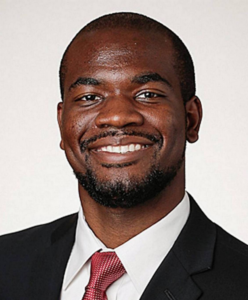 Allen Buansi, candidate for Town Council
Allen Buansi, candidate for Town Council
1. Describe some ways you would like Chapel Hill to be different in five years than it is now, and some ways you would like it to remain the same as now. What specific things will the Town government need to do to achieve your vision?
Wants changes, e.g. more socio-economically diverse town, more affordable housing, more bikeways/lanes that are protected from traffic (sited study), do better with walkability (problem walking from Berkshire to Whole Foods!), relieve traffic congestion.
Same? Moved here in 1998 with no car, used bus. Bus system is important and should increase frequency. Keep tree-lined roads. Rogers Rd. needs buses for work/to get downtown.
12-mo pilot study re Enterprise Zone to diversify tax base. Wants to ease property tax burden. Increase commercial and support local businesses; Tree canopy has been reduced (Del – restrictions lessened by FBC)
Need to preserve green space to absorb flood water and for appearance. Tricky problem. Mitigate runoff.
2. Evaluate the results to date of the form-based code adopted for the Ephesus-Fordham district (renamed Blue Hill). Specifically, what do you see as the strengths and weaknesses of the code?
Strengths: Created more commercial property
Weaknesses: Cookie-cutter projects with no public input on height, walkability, mitigation of stormwater, etc. Delegates a lot to staff. Likes DA’s (develop. Agreemts) because get public and staff input. FBC is not transparent. Wants to improve public input; daylight Booker Creek?
Del asked what happens if luxury apts take up all of our area? How can council help? Ans: Ask critical questions with sensitivity to adversely affected communities and partner with them; Chas asked if Allen would rescind the FBC. Ans: Can’t commit, would think about it.
3. The Town Manager’s role is to carry out the goals and visions of the elected Town Council. What, if anything, would you change about the data and analysis the Manager and his staff provide to Council members to inform their decisions?
“Use caution regarding what Council delegates to the Town Manager.” Not sure re data and analysis from Manager – don’t know enough. Says he will look into it.
“Use caution regarding what Council delegates to the Town Manager.” Not sure re data and analysis from Manager – don’t know enough. Says he will look into it.
Said that when receiving a report or data, he would always do his own research to make sure he had all the facts to consider.
Del asked if paid consultants were a good use of the town’s money. Ans: Public input should drive council decisions; don’t need to repeat studies if info already exists.
4. What are some specific, practical steps the Town could take to make it easier for those who work in Chapel Hill (e.g., teachers, public safety, Town staff and university and hospital employees) to also live here?
Inclusionary zoning ordinance results in payment in lieu. Council needs to follow the ordinance. Need 20% for 60% AMI and 80% AMI.
Work closely with Empowerment, CASA, Community Home Trust; need affordable housing rentals; 13 town public housing areas — need renovation; use funds that are allocated for affordable housing.
5. What should the Town government do to address Chapel Hill’s worsening traffic congestion? Are we on the right path for the transit we need?
Traffic congestion, BRT, Transit; Parking is a problem; need bike lanes on major arteries; need regular bus line for Rogers Rd.; need regular bus line for Rogers Rd, evenings and weekends, as well as during the day and need bus shelters.
Chas asked: as a lawyer, how will your background work for being on Council. Ans: As a lawyer have worked with school boards, county commissioners, town council (experience). Sees lack of public input at critical stages.
 Hongbin Gu, candidate for Town Council
Hongbin Gu, candidate for Town Council
1. Describe some ways you would like Chapel Hill to be different in five years than it is now, and some ways you would like it to remain the same as now. What specific things will the Town government need to do to achieve your vision?
Different in 5 years: stronger community = now people are staying within their own groups, so create opportunities for people to come together; create more parks, green spaces for people to enjoy/congregate. Objective is to shape who we are and to share cultural heritages. We’re all richer if we do so. Need to change trajectory of FBC which features lack of green spaces; efficiency is good but serious concerns around FB code and the direction it is taking the town.
Stay the Same: maintain environmental protection, inclusiveness and diversity, and maintain our focus on education & innovation using UNC to promote innovation.
2. Evaluate the results to date of the form-based code adopted for the Ephesus-Fordham district (renamed Blue Hill). Specifically, what do you see as the strengths and weaknesses of the code?
Code improves predictability for developers.
FB Code does not take into account more frequent storms or how much impervious surface we’ve already approved in the watershed; storm water situation. Town needs to take concrete actions by employing permeable concrete, creating public and green spaces with small parks and places to sit.
3. The Town Manager’s role is to carry out the goals and visions of the elected Town Council. What, if anything, would you change about the data and analysis the Manager and his staff provide to Council members to inform their decisions?
Data can be used/misused — what is important is the source of the data. It’s important to get several sources of data and not depend on one. Staff’s job to present comprehensive data which includes impacts on all aspects of the community, both economic and environmental. Town reports should not rely on sound bites – need thoughtful options so Council can find the balance between pros/cons on projects.
Consultants & PR positions. Expert opinions can be useful and UNC faculty can also provide local consultants; even when using consultant, Council mus consider decisions within context of CH/neighborhoods. Public opinion is always needed. Effective marketing should also have included the community and small business in the re naming of ‘Blue Hill’.
4. What are some specific, practical steps the Town could take to make it easier for those who work in Chapel Hill (e.g., teachers, public safety, Town staff and university and hospital employees) to also live here?
Chapel Hill is known for interest in inclusiveness and support for social justice issues. We are becoming more homogeneous. Diversity of income levels and culture makes us an interesting place to live and creates vibrancy. We need a comprehensive approach to determine what people want, don’t want a separate place for Affordable Housing – not healthy. Need mixed income throughout town.
5. What should the Town government do to address Chapel Hill’s worsening traffic congestion? Are we on the right path for the transit we need?
Expanding the number of highway lanes is not a solution to our traffic problems. Public transit is the key. If we had safe biking facilities more people would be biking. More frequent bus service is key. Another way to ease congestion is to have smaller retail centers scattered throughout town.
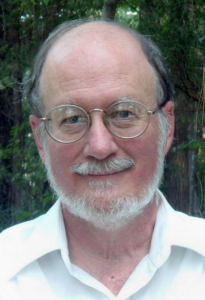 Ed Harrison, candidate for Town Council
Ed Harrison, candidate for Town Council
1. Describe some ways you would like Chapel Hill to be different in five years than it is now, and some ways you would like it to remain the same as now. What specific things will the Town government need to do to achieve your vision?
Change: Revise FBC. Changes in Eastgate not as stunning as Berkshire. Wanted AH (Affordable Housing) in E-F. Concerned with lack of green/open space with Berkshire. Scale did not meet small area plan.
Re downtown: Advocates more frequent transit; need better parking; can’t get there easily. Enough tall bldgs.; Franklin Hotel is nice height. 420% more was paid by Carolina Square in lieu of affordable housing due to his efforts.
2. Evaluate the results to date of the form-based code adopted for the Ephesus-Fordham district (renamed Blue Hill). Specifically, what do you see as the strengths and weaknesses of the code?
Weaknesses – lack of affordable housing and open space; small area plan had no high density building until Dwight did it for the Perry Family; we’ve lost BP station and other business; FBC is really rigid but inadequate. Council gave away its involvement in decisions in E-F. Council needs to fix FBC. FBC should not be used anywhere else in town. Re: new Days Inn project and flooding – stuck with FBC, so can’t tell them what to do.
Strengths – Where scale was appropriate, development worked e.g. Eastgate and CVS are positives.
3. The Town Manager’s role is to carry out the goals and visions of the elected Town Council. What, if anything, would you change about the data and analysis the Manager and his staff provide to Council members to inform their decisions?
Quality of data is improved. He is willing to go to Dept head of information; Residential is residential. Development community says it’s commercial, a misnomer.
Roger moved council meeting to Wednesday to allow two days to answer questions with council materials in hand. “Manager is always the filter.” “Not as bad as other government.” “Manager’s job is to run the staff.”
4. What are some specific, practical steps the Town could take to make it easier for those who work in Chapel Hill (e.g., teachers, public safety, Town staff and university and hospital employees) to also live here?
Legion Rd. units (he gave a number). 2200 Homestead Rd. will have tiny homes (Ed’s favorite) for mid-income. UNC Healthcare partnership. Asset management effort may open possibilities when town properties are sold. Need model like we used for DHIC – we supplied the property to developers for affordable housing. State law disallows affordable housing rental units.
John asked Ed how he sees role of council and talents needed. Answer: Pam made big change. Most of council he can work with, together with Pam. Council needs his experience.
5. What should the Town government do to address Chapel Hill’s worsening traffic congestion? Are we on the right path for the transit we need?
Traffic congestion, BRT, Transit is what we need.
Consultant doing transit plan for Durham, Raleigh, Chapel Hill. Opens up long-range planning. Take survey! BRT (he co-chaired this study committee for awhile) has not been funded by state; this is a CH Transit project and is further behind DOLRT in planning; We have stand-alone transit tax (1/30th of property tax) – that’s what we depend on. May need to raise transit tax.
Maria Palmer, candidate for Town Council
Council member Palmer refused to schedule an interview with us. We were willing to meet at a time of her choice but she turned us down.
Rachel Schaevitz, candidate for Town Council
1. Describe some ways you would like Chapel Hill to be different in five years than it is now, and some ways you would like it to remain the same as now. What specific things will the Town government need to do to achieve your vision?
Stay same: Funky local businesses; we want to keep those in our town.
Change: I’d like to see practical finite changes like building bike lanes in; this did not happen in EF planning; want focus on green construction; revise code to include energy efficiency; figure out how to maintain our local businesses under stress from redevelopment; building many apartments not helpful to improving net revenues for the town.
2. Evaluate the results to date of the form-based code adopted for the Ephesus-Fordham district (renamed Blue Hill). Specifically, what do you see as the strengths and weaknesses of the code?
FB Code was well-intentioned; Intended to kick start economic development by streamlining it and making it easy.
Problems: no teeth in this code to get what the community wanted; not reflective of community input from 2011 small area plan;
Questions: Should we start over? Will density bonuses work at this point of do we need a dramatic rewrite?
Wants to see AIA 2030 standards and energy efficiency put into code.
3. The Town Manager’s role is to carry out the goals and visions of the elected Town Council. What, if anything, would you change about the data and analysis the Manager and his staff provide to Council members to inform their decisions?
Important for Council to receive staff recommendation but often them come with no options. Want to see more analytic work: this is what the numbers tell us; Town Council is not well prepared to make good decisions without good staff work.
PR function at Town Hall has expanded. (What did she say?) Rachel thinks use of consultants can be valuable but wants to see a more strategic use of them. Appointed citizens, not consultants should lead public processes.
4. What are some specific, practical steps the Town could take to make it easier for those who work in Chapel Hill (e.g., teachers, public safety, Town staff and university and hospital employees) to also live here?
Asheville offers a great model for housing teachers. Our new Superintendant the definition of affordable housing.
Good transportation is a key component of affordability. We need safe bikelanes and more frequent and weekend bus service.
5. What should the Town government do to address Chapel Hill’s worsening traffic congestion? Are we on the right path for the transit we need?
Build protected bikelanes. For most people on road lanes on busy highways not considered safe.
 Karen Stegman, candidate for Town Council
Karen Stegman, candidate for Town Council
1. Describe some ways you would like Chapel Hill to be different in five years than it is now, and some ways you would like it to remain the same as now. What specific things will the Town government need to do to achieve your vision?
Change: Chapel Hill is her dream place, but barriers of opportunity to others; achievement gap in schools, opportunity gap in town; worked with non-profits in public housing neighborhoods, Pine Knolls. After public housing, no place to move up to better housing. Wants to see affordable cost of living, including housing.
Town needs to do more; $1m should be annual line item in budget; Partner with UNC Healthcare; Same: Keep walkability, green space, parks, good relationship with UNC, Launch, Northside initiative.
2. Evaluate the results to date of the form-based code adopted for the Ephesus-Fordham district (renamed Blue Hill). Specifically, what do you see as the strengths and weaknesses of the code?
Strengths: town identified area ripe for redevelopment. Tired of fence (old movie theater). FBC good concept because process needs streamlining, but don’t use it elsewhere. Council working to change it = good. Valid criticism of Berkshire. “learn as you go…~” CDC changes are good and supportive of more changes. Don’t pave anything else. Storm water will be taken care of when Days Inn is replaced with apt building with a large concrete container.
[Did not seem to be familiar with stormwater or RCD or LUMO rules not in FBC, etc.]
3. The Town Manager’s role is to carry out the goals and visions of the elected Town Council. What, if anything, would you change about the data and analysis the Manager and his staff provide to Council members to inform their decisions?
Believes Staff is very responsive; Town website too dense, not easy; thinks many town personnel devoted to communication is good .
4. What are some specific, practical steps the Town could take to make it easier for those who work in Chapel Hill (e.g., teachers, public safety, Town staff and university and hospital employees) to also live here?
Inclusionary zoning is too narrow and needs to be looked at again; Council needs to be stronger in setting goals with developer; build the units rather than accepting payment in-lieu option; Partner with schools and UNC; use CASA, DHIC; look at Asheville model for teachers.
Question: does she think the new buildings affected affordability? Ans: “No. CH will always be pricey”, e.g. the high rise buildings are having no impact on housing prices.
5. What should the Town government do to address Chapel Hill’s worsening traffic congestion? Are we on the right path for the transit we need?
Traffic congestion/BRT/Transit; need comprehensive planning; BRT should be funded; Need for safe pedestrian and bike mobility; Need more economic development; Feels better about E-F (intersection?) after changes were made. Much more money needed.
 Carl Schuler, candidate for Town Council
Carl Schuler, candidate for Town Council
1. Describe some ways you would like Chapel Hill to be different in five years than it is now, and some ways you would like it to remain the same as now. What specific things will the Town government need to do to achieve your vision?
Would keep current strengths of civility and education. Would change FBC by including public input. Streamlined process is good. Must listen to people. Vineyard Square is not good development – no affordable housing. (Factually untrue – there is an entire area with AH townhouses.)
2. Evaluate the results to date of the form-based code adopted for the Ephesus-Fordham district (renamed Blue Hill). Specifically, what do you see as the strengths and weaknesses of the code?
Strengths: Uniformity, process and forward movement. (He understood PB involved in review; it is not). Council sets policy and listens to what needs changing, FBC carries it out.
Weaknesses: Scale, building sizes. Council should take public input on proposed changes. Get public/Staff input on flooding. FBC needs more tweaks.
3. The Town Manager’s role is to carry out the goals and visions of the elected Town Council. What, if anything, would you change about the data and analysis the Manager and his staff provide to Council members to inform their decisions?
Data not balanced. Would stand his ground and listen to public. Would pay attention to data from staff and public. Use consultants if above skill set of staff. Spend money wisely. People will support bonds, but information about how they are disbursed must be public.
4. What are some specific, practical steps the Town could take to make it easier for those who work in Chapel Hill (e.g., teachers, public safety, Town staff and university and hospital employees) to also live here?
Supports integration — works in the Blue Ribbon Mentor program. Need affordable rentals, owner occupied housing. Change ordinance so 5 unrelated people can live in one unit — would make each person’s share smaller. Get recommendations from Staff.
5. What should the Town government do to address Chapel Hill’s worsening traffic congestion? Are we on the right path for the transit we need?
Chapel Hill highly dependent on automobiles. Need more transit hours, bus routes. Study transit patterns to learn what is needed and when. Denser development decreases auto needs. LRT could be economic driver – “I would think there would be opportunities to look carefully at where additional development could occur.”

